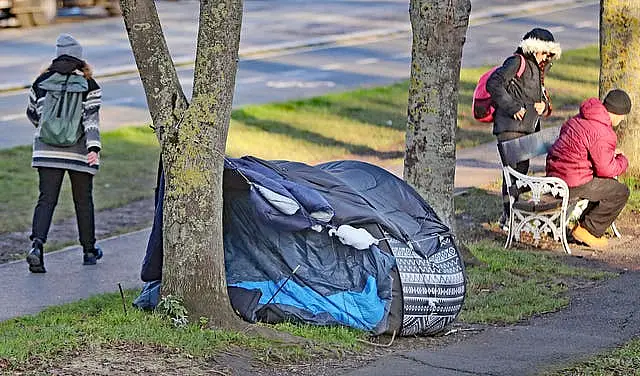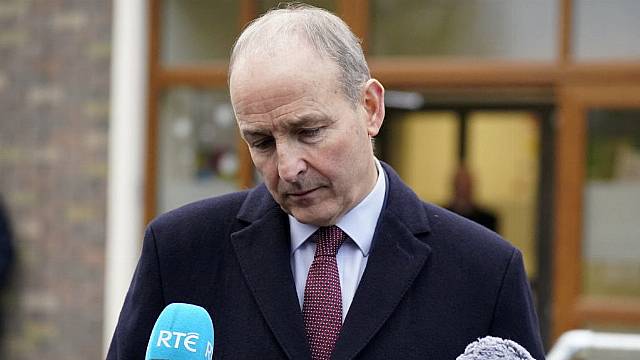The Government is “very concerned” about the risks associated with newly arrived asylum seekers having to sleep rough in freezing conditions, the Tánaiste has said.
Micheál Martin was commenting after it was confirmed the state is no longer able to offer accommodation to all new international protection (IP) applicants.
Mr Martin has insisted state accommodation provision has not reached the point of “full exhaustion” and ministers will be meeting before the end of the week to assess what other options could be explored to provide more beds.
The department for integration confirmed on Monday it is not in a position to provide a bed for all applicants due to a “severe shortage” of accommodation.

Women and child applicants will continue to be accommodated.
Male applicants without accommodation can still access services at drop-in centres, including showers, hot food and laundry.
They will also be given tents and sleeping bags, if required.
Asked by reporters in Dublin on Monday about the potentially deadly risks associated with sleeping rough in freezing temperatures, Mr Martin said: “Obviously we’re very, very concerned about that and we will do everything we possibly can to avoid it.”
Mr Martin said ministers will also consider proposals that would see unaccommodated IP applicants get enhanced allowance payments.
The Tánaiste said the accommodation situation is “challenging”, adding that those claiming the Government could have foreseen the issue are adopting a “too simplistic” approach.
“The situation is challenging,” he said.
“We have about 100,000 Ukrainians, 70,000-odd of which we are accommodating via the state and about 26,000 international protection asylum seekers.
“I think it’s a reflection of significant instability across the world where pressure is growing and continues to grow because of war and conflict, particularly in Ukraine but also the Middle East.
“As you know, I am back from Jordan and Egypt in recent times. The amount of migration that they have experienced because of the war in Syria and because of instability in Palestine itself all points to a very difficult scenario.
“So domestically here then, we have to do everything we possibly can to provide accommodation under our international legal obligations. And we will continue to do that and Government will be meeting this week again to assess the situation.”
He added: “It’s not just in Ireland. This is happening across Europe, is happening across the United States.”

The Tánaiste continued: “This is a global phenomenon – migration – and it’s not going to resolve itself anytime soon.”
The department, which blamed issues beyond its control, highlighted that the state is currently accommodating more than 100,000 people between Ukrainian refugees and IP applicants.
A spokesman said: “This includes over 74,000 Ukrainian people who have sought accommodation from the state and nearly 26,000 IP applicants currently in International Protection Accommodation Service (IPAS) accommodation.
“Despite intensive efforts to source emergency accommodation, the department is currently not in a position to provide accommodation to all international protection applicants due to the severe shortage.
“Department officials are working to bring more bed spaces into use, and since January 2022 have brought over 10,000 bed spaces into use to accommodate those who arrive in Ireland seeking international protection.
“Various issues beyond the control of the department have resulted in offers not being progressed, and accommodation not contracted, swiftly enough to meet the demand.”
The spokesman added: “Drop-in day services will be available to unaccommodated IP applicants who wish to avail of them.
“In such centres, IP applicants can access facilities including hot showers, meals and laundry services seven days a week.
“They also provide tents and sleeping bags, where required.
“Currently, this department has agreements with two charities to provide these services in Dublin in the event that they are needed.
“All unaccommodated IP applicants will be provided with the contact details for IPAS and with information on accessing health and other public services in Ireland.
“The department will work closely with the HSE to ensure that health services are provided to all those in need.
“All IP applicants who present to the International Protection Office (IPO) during an unaccommodated period will be assessed by IPAS and HSE staff for significant vulnerabilities and health issues, and prioritised for accommodation as necessary.”







